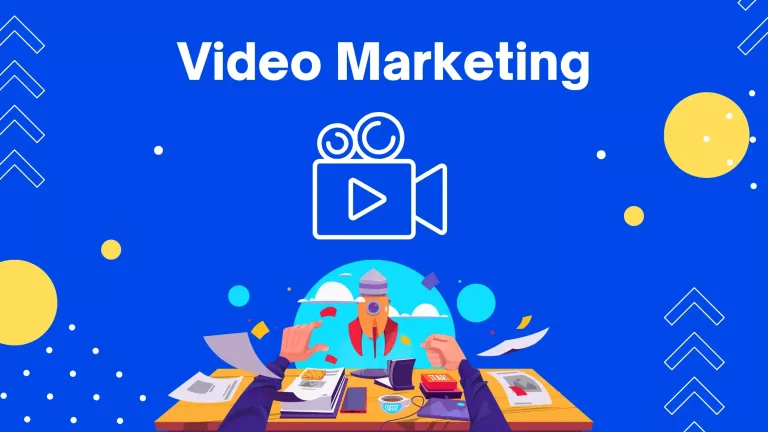As the demand for personalized customer experiences grows, marketers need efficient ways to reach their audience at the right time with the right message. That is where marketing automation comes into play.
Marketing automation has become a cornerstone of modern digital marketing strategies, enabling businesses to streamline processes, enhance customer engagement, and ultimately drive better results.
This blog post is designed to provide readers with a deep understanding of marketing automation in digital marketing, how it works, the processes involved, the tools available, and examples of its application.
What is Marketing Automation?
Table of Contents
Marketing automation uses software and technology to automate repetitive marketing tasks and processes. It encompasses various activities, including email marketing, social media management, lead generation, customer segmentation, and analytics.
By automating these tasks, businesses can improve efficiency, reduce manual labor, and deliver personalized experiences at scale.
Key Components of Marketing Automation
- Email Marketing Automation: The ability to send targeted and personalized emails to customers based on their behavior, preferences, and interactions with your brand.
- Lead Scoring and Nurturing: A system that scores leads based on their interactions and readiness to purchase and nurtures them with relevant content until they are ready to convert.
- Social Media Automation: Tools that allow marketers to schedule posts, track engagement, and manage multiple social media accounts from a single platform.
- Customer Segmentation: The process of dividing a customer base into groups based on specific criteria such as demographics, purchase history, or behavior.
- Analytics and Reporting: The collection and analysis of data to measure the performance of marketing campaigns and make informed decisions.
- Customer Relationship Management (CRM) Integration: Synchronizing marketing automation tools with CRM systems to maintain consistent communication with leads and customers.
The Processes Involved in Marketing Automation
Marketing automation involves processes designed to streamline and optimize marketing efforts. These processes ensure the right message is delivered to the right audience at the right time.
Below, we will explore the key processes involved in marketing automation.
Lead Generation
Lead generation attracts and converts strangers into potential customers, or “leads.” Marketing automation can significantly enhance lead generation efforts by automating the collection of contact information, tracking visitor behavior on websites, and capturing leads through forms and landing pages.
Some critical tactics include;
Content Marketing: Creating valuable content such as eBooks, whitepapers, webinars, and blog posts to attract potential leads.
Landing Pages: Designing optimized landing pages with clear calls to action (CTAs) to capture lead information.
Web Forms: Website forms collect contact information from visitors in exchange for access to valuable content.
Lead Scoring
Once leads are generated, assessing their quality and determining how likely they will convert into customers is crucial. Lead scoring is a process that assigns points to leads based on their behavior, engagement level, and demographic information. For example, a lead who downloads an eBook visits multiple pages on your website, and subscribes to your newsletter might score higher than a lead who fills out a form.
Lead Nurturing
Lead nurturing involves building relationships with potential customers by providing relevant and valuable content throughout their buyer’s journey. This process is essential for moving leads through the sales funnel and converting them into customers. Marketing automation enables businesses to deliver personalized content based on the lead’s behavior and stage in the funnel.
Key tactics for lead nurturing include;
Email Drip Campaigns: Over time, send automated emails to leads to educate them and keep your brand at the forefront of your mind.
Targeted Content: Providing leads with content that aligns with their interests and needs at each journey stage.
Retargeting Ads: Displaying ads to leads who have interacted with your website or content to keep them engaged.
Customer Segmentation
Customer segmentation is dividing your customer base into distinct groups based on specific criteria. By segmenting customers, businesses can deliver more personalized and relevant marketing messages. Marketing automation tools allow for the dynamic segmentation of customers based on their behavior, demographics, and purchase history.
Common segmentation criteria include:
Demographics: Age, gender, income, education level, etc.
Behavior: Website visits, email opens, clicks, purchase history, etc.
Geography: Location, region, city, etc.
Psychographics: Interests, values, lifestyle, etc.
Campaign Automation
Using automation tools, campaign automation involves creating, scheduling, and executing marketing campaigns across multiple channels. This process allows marketers to plan and deploy campaigns at scale, ensuring that the right message reaches the right audience at the right time.
Key aspects of campaign automation include;
Multi-Channel Marketing: Automating campaigns across various channels such as email, social media, search engines, and more.
A/B Testing: Testing different variations of campaigns to determine which performs better.
Triggered Campaigns: Set up campaigns triggered by specific actions or events, such as a lead’s interaction with your website or a purchase.
Analytics and Reporting
Analytics and reporting are critical components of marketing automation, allowing businesses to measure the effectiveness of their campaigns and make data-driven decisions. Marketing automation tools provide detailed reports on key metrics such as open rates, click-through rates, conversion rates, and ROI.
Key metrics to track include;
Email Performance: Open rates, click-through rates, bounce rates, and unsubscribe rates.
Lead Conversion: The percentage of leads that convert into customers.
Customer Lifetime Value (CLV): The total revenue a business can expect from a customer throughout their relationship.
ROI: The return on investment from marketing automation campaigns.
Customer Relationship Management (CRM) Integration
Integrating marketing automation with a CRM system ensures that customer data is synchronized across platforms, providing a 360-degree view of the customer. This integration allows for seamless communication between marketing and sales teams, enabling them to work together to convert leads into customers.
Key benefits of CRM integration include;
Improved Lead Tracking: Sales teams can track the history of interactions with leads, allowing for more personalized follow-ups.
Consistent Communication: Marketing and sales teams can communicate consistently with leads and customers.
Enhanced Customer Insights: CRM integration provides a deeper understanding of customer behavior and preferences.
Tools for Marketing Automation
Several marketing automation tools are available to help businesses streamline their marketing processes. These tools vary in features, pricing, and ease of use, making it important to choose the one that best fits your business needs.
Here are some of the most popular marketing automation tools.
HubSpot
HubSpot is one of the leading marketing automation platforms, offering a comprehensive suite of tools for inbound marketing, sales, and customer service. HubSpot’s marketing automation features include email marketing, lead scoring, CRM integration, social media management, and analytics. HubSpot is known for its user-friendly interface and extensive educational resources.
Marketo
Marketo, owned by Adobe, is a powerful marketing automation platform for businesses of all sizes. Marketo offers many features, including email marketing, lead nurturing, customer segmentation, and analytics. Marketo’s strength lies in its flexibility and scalability, making it a popular choice for enterprise-level businesses.
Pardot
Pardot, a Salesforce product, is a B2B marketing automation platform focusing on lead generation, lead nurturing and scoring. Pardot integrates seamlessly with Salesforce CRM, making it an ideal choice for businesses already using Salesforce. Key features of Pardot include email marketing, lead management, ROI reporting, and campaign automation.
ActiveCampaign
ActiveCampaign is a marketing automation platform that combines email marketing, CRM, and sales automation. ActiveCampaign is known for its powerful automation workflows, allowing businesses to create complex automation sequences easily. ActiveCampaign is a popular choice for small to mid-sized companies looking for an affordable and feature-rich solution.
Mailchimp
Mailchimp is a popular email marketing platform that has expanded its offerings to include marketing automation. Mailchimp’s marketing automation features include email marketing, customer segmentation, and retargeting ads. Mailchimp is known for its ease of use and affordability, making it a popular choice for small businesses and startups.
Autopilot
Autopilot is a visual marketing automation platform that allows businesses to create and automate customer journeys using a drag-and-drop interface. Autopilot’s key features include email marketing, lead nurturing, CRM integration, and analytics. Autopilot is known for its intuitive interface and visual approach to automation.
GetResponse
GetResponse is an all-in-one marketing automation platform that offers email marketing, landing pages, webinars, and CRM. GetResponse’s marketing automation features include lead scoring, customer segmentation, and campaign automation. GetResponse is a popular choice for businesses looking for a comprehensive marketing solution.
Drip
Drip is a marketing automation platform designed specifically for e-commerce businesses. Drip offers powerful automation workflows, customer segmentation, and personalized email marketing. Drip’s focus on eCommerce makes it a popular choice for online retailers looking to increase sales and customer loyalty.
Application and Examples of Marketing Automation
Businesses across various industries have successfully implemented marketing automation to achieve their marketing goals.
Let’s explore real-world examples of how marketing automation has been used to drive results.
- E-commerce Business
An eCommerce business selling beauty products used marketing automation to increase customer retention and sales. The company implemented a series of automated email campaigns to target customers who had abandoned their shopping carts. By sending personalized emails with reminders and special offers, the business recovered a significant percentage of abandoned carts, increasing sales.
- B2B Software Company
A B2B software company used marketing automation to nurture leads through the sales funnel. The company created a series of email drip campaigns that provided leads with valuable content related to their industry and pain points. By segmenting leads based on their behavior and engagement, the company delivered personalized content that moved leads closer to purchasing. As a result, the company saw increased lead conversion rates and a shorter sales cycle.
- Non-Profit Organization
A non-profit organization used marketing automation to improve donor engagement and retention. The organization implemented a series of automated email campaigns to thank donors for their contributions and provide updates on how their donations were making an impact. By sending personalized emails based on donor behavior and giving history, the organization increased donor retention and encouraged repeat donations.
- SaaS Company
A SaaS company used marketing automation to streamline its onboarding process for new customers. The company created an automated onboarding email series that guided new customers through the setup process and provided tips on how to get the most out of the software. By automating the onboarding process, the company reduced customer support inquiries and increased customer satisfaction.
- Healthcare Provider
A healthcare provider used marketing automation to improve patient communication and engagement. The provider implemented automated appointment reminders and follow-up emails to inform patients about upcoming appointments and post-visit care instructions. The provider could reduce no-show rates and improve patient outcomes by automating these communications.
What We Say
Marketing automation is a powerful tool that enables businesses to streamline their marketing processes, deliver personalized experiences, and drive better results. Companies can focus on more strategic activities and achieve their marketing goals more efficiently by automating repetitive tasks such as email marketing, lead nurturing, and customer segmentation. The key to successful marketing automation lies in understanding your audience, creating valuable content, and using the right tools to automate and optimize your campaigns.
As the digital marketing niche continues to evolve, marketing automation will play an increasingly important role in helping businesses stay competitive and meet the demands of modern consumers. Whether you’re a small business just starting with marketing automation or an enterprise-level company looking to scale your efforts, the right marketing automation tools and strategies can help you succeed.
By understanding the processes involved in marketing automation and leveraging the right tools, businesses can create more effective marketing campaigns, nurture leads more efficiently, and build stronger customer relationships. As technology advances, the possibilities for marketing automation are endless, making it an essential component of any modern digital marketing strategy.
A certified digital marketing course will teach you how to perform customer and business research, provide marketing automation tools, develop a customer retention plan, and research all the key marketing channels to leverage them to engage your customers and grow your business. What are you waiting for?




